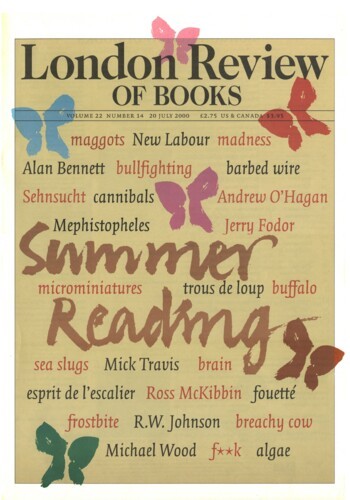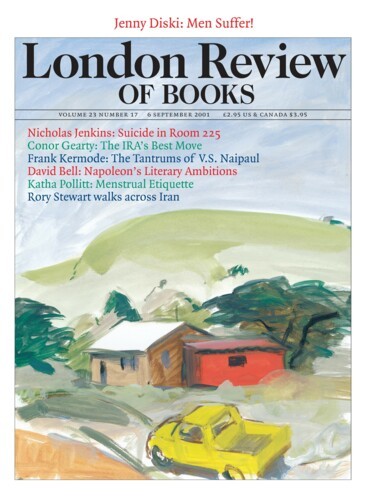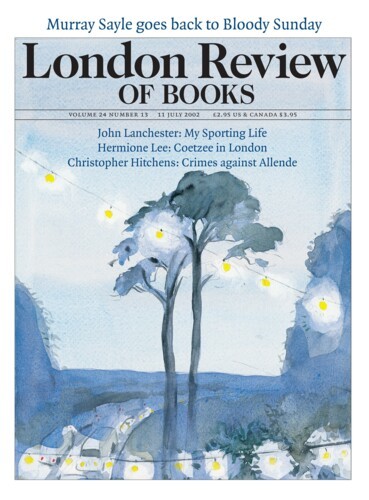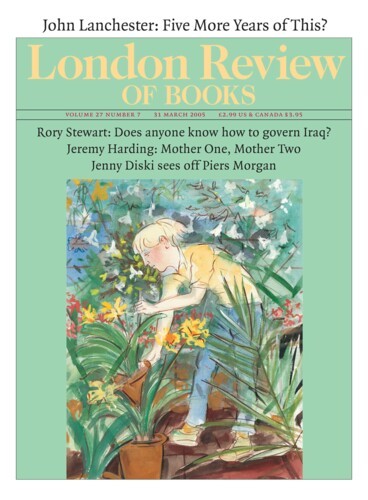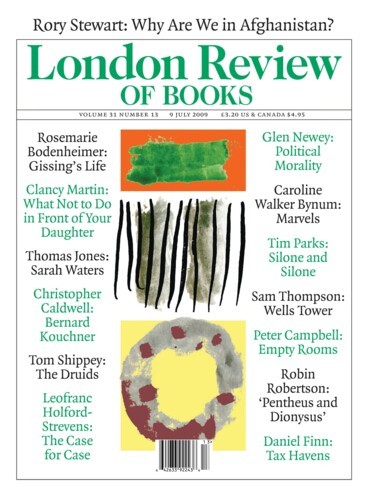Diary: In Papua
Rory Stewart, 20 July 2000
Caleb held a bundle of arrows in his left hand and a bow and single arrow in his right. His mother was holding her torn ears between her thumbs and forefingers. Her chin was on her bare chest. Her legs were coated with grey mud. She was shivering as she watched me and behind her the smoke, seeping out of the hut walls, mingled with the fog and cold rain. Around her was the jungle.
